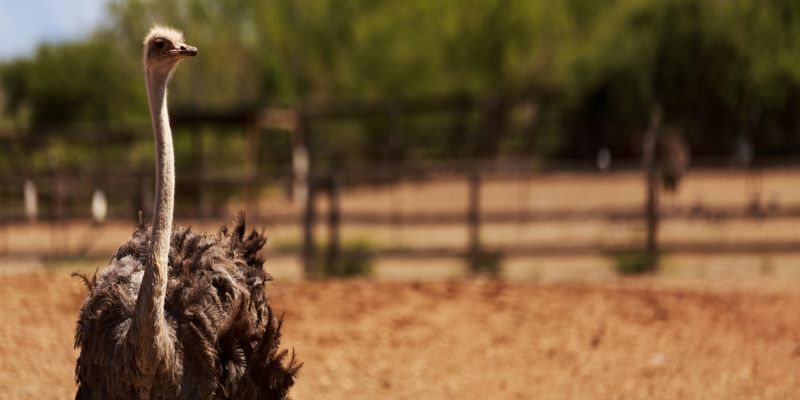
The Texas Farm Animal Liability Act (FALA) began in 1995 as the Texas Equine Act, a narrow statute that protected horse owners from liability for participants’ injuries resulting from the inherent risks of interacting with horses. This statute was expanded in 2011 to cover not only horses, but “farm animals” generally. “Farm animals” are defined in the statute as equines, bovines, sheep, goats, pigs, hogs, ratites (large flightless birds, including rheas, ostriches, and emus), chicken, and other fowl (Tex. Civ. Practice & Rem Code § 87-001(2-1).
The Act defines the “inherent risks” of interacting with farm animals as:
(1) the propensity of a farm animal or livestock animal to behave in ways that may result in personal injury or death to a person on or around it;
(2) the unpredictability of a farm animal’s or livestock animal’s reaction to sound, a sudden movement, or an unfamiliar object, person, or other animal;
(3) with respect to farm animal activities involving equine animals, certain land conditions and hazards, including surface and subsurface conditions;
(4) a collision with another animal or an object; or
(5) the potential of a participant to act in a negligent manner that may contribute to injury to the participant or another, including failing to maintain control over a farm animal or livestock animal or not acting within the participant’s ability.
Recently, there has been a flurry of action both from Texas courts and the legislature regarding FALA. In 2020, the Texas Supreme Court ruled in Waak v. Rodriguez that FALA does not apply to injury to ranchers or ranch hands. Here, the Court reasoned that the statute’s protections did not include ranches and were confined to “the contact of shows, rides, exhibitions, competitions, and the like.” The Court also found the definition of a “participant” under FALA did not include ranchers or ranch hands (Waak v. Rodriguez, 603 S.W.3d 103, Tex. 2020).
After Waak, the Texas Legislature met for the 87th Legislative Session and made some major modifications to the FALA. House Bill 365, which was signed by Governor Abbot on June 6, 2021 and went into effect on September 1, 2021, has the effects of 1) expanding activity descriptions, 2) expanding the definition of “farm animal professional,” 3) changing the definition of “farm animal,” 4) modifying the required warning signage, 5) adding protection for employees and independent contractors, and 6) clarifying that FALA does not inhibit an employer’s ability to refuse to subscribe to workers’ compensation. As a result of HB 365, FALA now includes protection for those engaged in virtually all commonplace activities on ranches. Individuals engaged in veterinary activities are also now protected under FALA. A much less important change is that “farm animals” now include honeybees kept in a managed colony (Tex. H.B. 365, 87th Leg. R.S., 2021).
The main takeaway here is that farm animal professionals, farm owners, or lessees should take care to post the required statutory warning sign so they can take advantage of FALA’s protection. The warning must have the following language:
WARNING
UNDER TEXAS LAW (CHAPTER 87, CIVIL PRACTICE AND REMEDIES CODE), A
FARM ANIMAL PROFESSIONAL OR FARM OWNER OR LESSEE IS NOT LIABLE FOR
AN INJURY TO OR THE DEATH OF A PARTICIPANT IN FARM ANIMAL
ACTIVITIES, INCLUDING AN EMPLOYEE OR INDEPENDENT CONTRACTOR,
RESULTING FROM THE INHERENT RISKS OF FARM ANIMAL ACTIVITIES.
This sign should be posted in a clearly visible location on or near the stable, corral, or arena where the professional, owner, or lessee conducts a farm animal activity. It is important to work with an experienced attorney if you are concerned about liability stemming from work with farm animals.
All information provided on Silblawfirm.com (hereinafter "website") is provided for informational purposes only and is not intended to be used for legal advice. Users of this website should not take any actions or refrain from taking any actions based upon content or information on this website. Users of this site should contact a licensed Texas attorney for a full and complete review of their legal issues.
